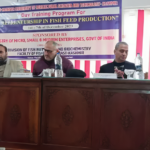
The World Trade Organization’s (WTO) tariff moratorium on digital transmissions is crucial for India’s MSMEs to thrive and play a pivotal role in the country’s digital revolution. Digital technologies gained prominence during the COVID-19 pandemic, underscoring their importance. The Jaipur Call for Action emphasized the need to enhance MSMEs’ access to trade databases and information using the Global Trade Helpdesk.
Prime Minister Narendra Modi highlighted India’s position as a digital leader in Industry 4.0, with MSMEs playing a central role. Cross-border digital transmissions are essential for their sustained growth.
India has outpaced advanced economies in digital transformations, both domestically and in exports. With the number of internet subscribers projected to reach 800 million by the end of 2023, small businesses are increasingly adopting digital services.
The WTO’s tariff moratorium on electronic commerce, renewed every two years, has benefited India’s services exports and imports. If the moratorium ends, it could disrupt various cross-border data transmissions and harm MSME growth.
Research indicates that digital imports benefit MSMEs, leading to increased employment, value addition, and labor productivity. Tariffs on digital imports may raise costs for MSMEs, but Indian digital service providers have risen to the challenge.
In conclusion, any changes to the WTO moratorium would impact India’s MSME sector negatively and disrupt the global digital sector’s stability and predictability. Policymakers should focus on facilitating access to digital services inputs to support small businesses’ expansion. The moratorium is essential for the emergence of Global South countries as producers, aligning with the call for a “more diversified and more democratic” re-globalization.






